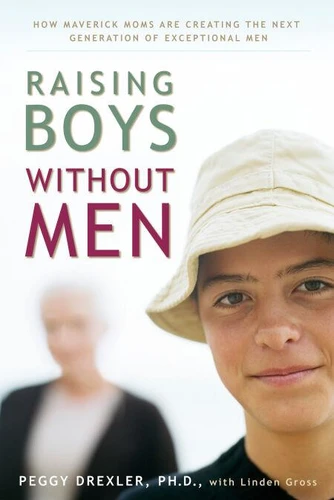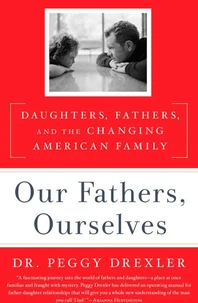Raising Boys without Men. How Maverick Moms Are Creating the Next Generation of Exceptional Men
Par : ,Formats :
Disponible dans votre compte client Decitre ou Furet du Nord dès validation de votre commande. Le format ePub protégé est :
- Compatible avec une lecture sur My Vivlio (smartphone, tablette, ordinateur)
- Compatible avec une lecture sur liseuses Vivlio
- Pour les liseuses autres que Vivlio, vous devez utiliser le logiciel Adobe Digital Edition. Non compatible avec la lecture sur les liseuses Kindle, Remarkable et Sony
- Non compatible avec un achat hors France métropolitaine
 , qui est-ce ?
, qui est-ce ?Notre partenaire de plateforme de lecture numérique où vous retrouverez l'ensemble de vos ebooks gratuitement
Pour en savoir plus sur nos ebooks, consultez notre aide en ligne ici
- Nombre de pages240
- FormatePub
- ISBN1-62336-237-7
- EAN9781623362379
- Date de parution20/08/2005
- Protection num.Adobe DRM
- Taille1 Mo
- Infos supplémentairesepub
- ÉditeurRodale Books
Résumé
Nominated for a Books for a Better Life Award in ParentingBacked by peer-reviewed research, this hotly debated bestseller (San Francisco Chronicle) continues to open eyes with its finding that raising thriving, emotionally healthy sons does not require a man in the house. As the number of single-mom and two-mom households has grown, so have concerns about the possible damage caused by the lack of a stable male role model in the house.
Determined to find the truth, research psychologist Peggy Drexler embarked on a long-term study comparing boys raised in nontraditional families with those whose fathers were present throughout their childhood. The results were startling. Female-headed households can provide even better parenting for boys than households with men. Sons from female-headed families can grow up emotionally stronger and more well-rounded than boys from "traditional" mother-father families-more in touch with their feelings yet masculine in all the ways defined by our culture.
Determined to find the truth, research psychologist Peggy Drexler embarked on a long-term study comparing boys raised in nontraditional families with those whose fathers were present throughout their childhood. The results were startling. Female-headed households can provide even better parenting for boys than households with men. Sons from female-headed families can grow up emotionally stronger and more well-rounded than boys from "traditional" mother-father families-more in touch with their feelings yet masculine in all the ways defined by our culture.
Nominated for a Books for a Better Life Award in ParentingBacked by peer-reviewed research, this hotly debated bestseller (San Francisco Chronicle) continues to open eyes with its finding that raising thriving, emotionally healthy sons does not require a man in the house. As the number of single-mom and two-mom households has grown, so have concerns about the possible damage caused by the lack of a stable male role model in the house.
Determined to find the truth, research psychologist Peggy Drexler embarked on a long-term study comparing boys raised in nontraditional families with those whose fathers were present throughout their childhood. The results were startling. Female-headed households can provide even better parenting for boys than households with men. Sons from female-headed families can grow up emotionally stronger and more well-rounded than boys from "traditional" mother-father families-more in touch with their feelings yet masculine in all the ways defined by our culture.
Determined to find the truth, research psychologist Peggy Drexler embarked on a long-term study comparing boys raised in nontraditional families with those whose fathers were present throughout their childhood. The results were startling. Female-headed households can provide even better parenting for boys than households with men. Sons from female-headed families can grow up emotionally stronger and more well-rounded than boys from "traditional" mother-father families-more in touch with their feelings yet masculine in all the ways defined by our culture.




